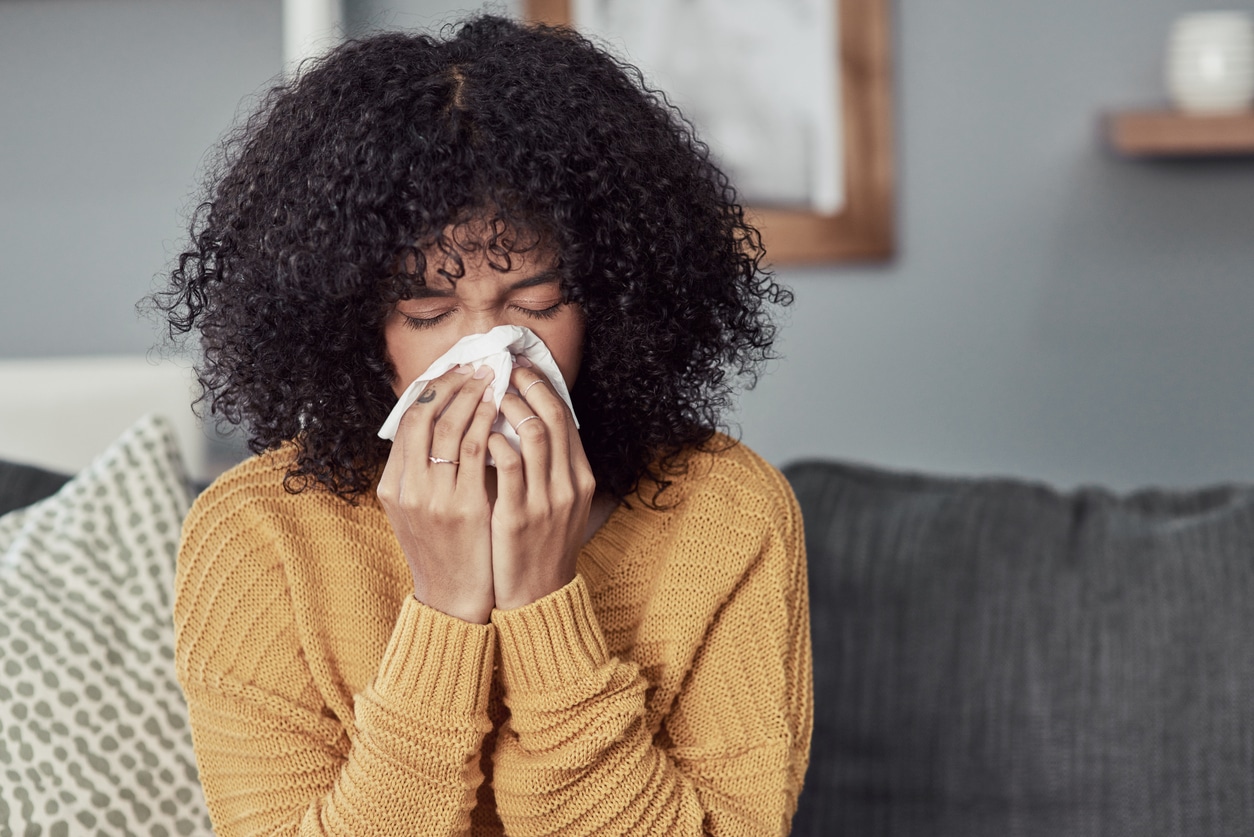While allergies frequently first appear in childhood, some people don’t develop allergy symptoms until they are in their 20s or 30s.
Allergies develop in two phases. In the first phase, your body comes into contact with a harmless substance, like pollen, and mistakes it for something harmful. In response, you make allergic antibodies, called IgE antibodies, to fight that substance.
The second phase happens the next time you are exposed to the allergen. It binds to the IgE antibodies and causes allergy symptoms like sneezing, watery eyes and congestion.
Common adult allergy triggers include:
- Pollen
- Pet dander
- Foods like seafood, tree nuts and soy
Why Do Adult Allergies Happen?

If you never had allergies as a child, yet now find yourself sneezing every time you take a stroll through Wilderness Park, you might wonder what caused your newfound symptoms. While the exact reasons why some people develop allergies in adulthood are unknown, there are several possibilities.
- Relocating to an environment where you may be exposed to new allergens you previously had no contact with.
- Getting a pet for the first time.
- Having little to no exposure to an allergen as a child.
- Exposure to an allergen when your immune system is weakened or compromised.
Treatment and Prevention
The type of allergies you have, as well as the severity of your symptoms, will help determine your treatment and prevention options.
With all allergies, the best way to prevent symptoms is to avoid exposure to the allergen. This could mean doing things like:
- Avoiding dishes that contain foods you’re allergic to
- Staying indoors and keeping your windows closed when pollen levels are high
- Having a dehumidifier in the house
- Regularly dusting and vacuuming your home
Sometimes it’s unrealistic to completely avoid your allergens. In that case, over-the-counter (OTC) medications like antihistamines and decongestants might be enough to manage your symptoms.
Seeing an Allergist
If you aren’t finding relief with OTC treatments or are unsure what is causing your allergy symptoms, make an appointment to see an allergist. They can run skin and blood tests to identify your triggers and prescribe medication.
If your allergies do not respond to other medical treatments, your allergist may suggest immunotherapy, which is a method of building tolerance to an allergen by introducing it in small doses over a period of time. Immunotherapy is most commonly administered via allergy shots, though allergy drops that you take orally are sometimes prescribed instead.
If you have questions about adult allergies or wish to schedule an appointment with one of our experts, call Lake Jackson ENT & Med Spa today.